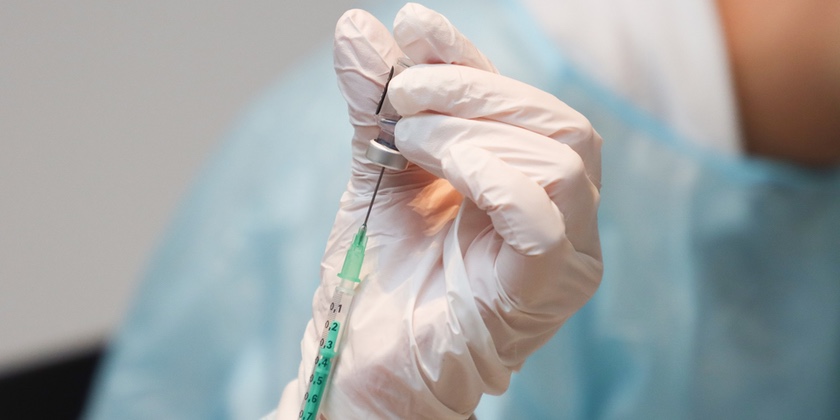Vaccine plea issued amid rise in cases of flu in north Wales hospitals

The number of hospital patients testing positive for the flu has reached its highest level since January 2023.
In the last four weeks alone over 200 inpatients at hospitals across the region were confirmed as having the virus.
Betsi Cadwaladr University Health Board is now urging eligible adults to come forward for their free flu and covid-19 vaccine.
Both viruses are still circulating in communities across North Wales.
Walk-in COVID-19 and flu vaccination clinics for eligible adults are being held at our community vaccination centres this week and until the end of March.
The vaccines can prevent you getting the viruses, lessen the severity of symptoms if you do, and reduce your chances of passing them on.
They also help to protect the wider community from outbreaks, and reduce the pressure on local NHS services.
If you have been contacted with an invitation for your vaccine, please make sure you take it up.
Painless nasal spray flu vaccines are available from GP surgeries for children aged two and three (age on August 31 2022).
Schoolchildren from Reception to Year 11 can still get a spray flu vaccine at catch-up clinics organised by school immunisation teams. Please look out for more details advertised through school.
COVID-19 Spring booster programme
In the coming weeks the health board will also start contacting those eligible for a spring booster covid jab.
From April 2 Betsi Cadwaladr will start offering a booster vaccine to:
- all adults aged 75 years and over
- residents in care homes for older adults
- all adults and children aged six months and over who are immunosuppressed (as defined by tables 3 and 4 of the Green Book).
The COVID-19 Spring booster will be offered to patients around six months after their last dose of the vaccine
Measles vaccination
There are also growing concerns about the spread of measles following outbreaks in Cardiff and the West Midlands.
Measles is highly contagious, and can spread very quickly amongst adults and children who are not vaccinated. Symptoms of measles include a high fever, a cough, runny nose, red watery eyes, a rash and spots in the mouth.
It can lead to hospitalisation, severe complications and can be life threatening in rare cases.
Unvaccinated contacts of people who have measles may be required to isolate for up to 21 days.
While data shows children in North Wales have a higher level of protection against measles than many other areas of Wales and the UK, MMR vaccine coverage is below the recommended level of 95 per cent.
The health board is now calling on parents to ensure their children are fully vaccinated against measles with two doses of the safe and effective MMR vaccine.
A spokesperson for Betsi Cadwaladr University Health Board said: “If you think your child may have missed an MMR vaccine please check the vaccination record in their red book.
“If you need to catch up with an MMR vaccine, please contact your GP surgery or health visitor.
“Our school nursing and immunisation teams are reviewing records and offering catch up MMR vaccination to secondary school age children who need it as part of routine clinics.
“Please look out for more information and a consent form from their school or your local authority.
“Further information about the MMR vaccine, how to get it, and the protection it offers against measles, mumps and rubella is available here.”
Pertussis (whooping cough) vaccination
Health officials are encouraging expectant mothers and parents of newborn children to take up vaccination against pertussis (whooping cough).
Whooping cough is a bacterial infection of the lungs which spreads very easily. It can cause serious health problems, with very young children at highest risk. Read more details about whooping cough at NHS 111 Wales.
Pregnant women are offered pertussis vaccination during pregnancy to help protect their child during the earliest weeks of their life. Babies are offered further vaccination as part of the routine schedule at eight, 12 and 16 weeks.
Suspected cases of whooping cough have risen rapidly in recent weeks.
If you are pregnant or have a new baby please make sure you or your child has the pertussis vaccine and all other routine vaccinations.
If you have any questions, please speak to your community midwife or health visitor.
Spotted something? Got a story? Email: [email protected]
Latest News
